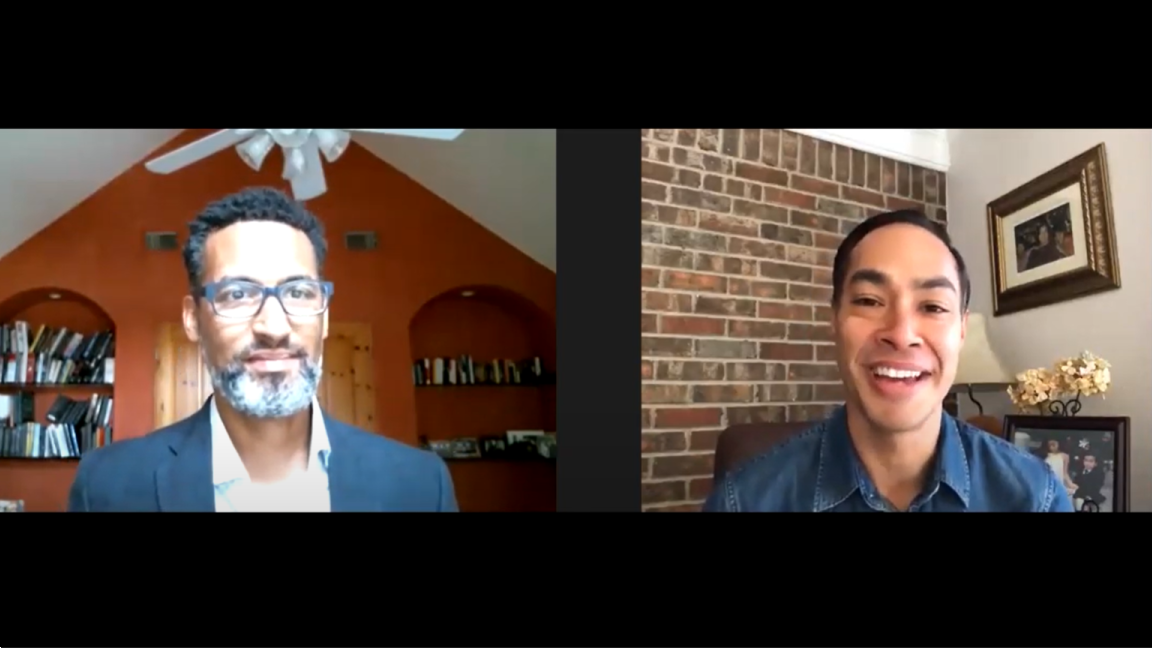
Former HUD Secretary Julián Castro discusses future of federal housing
Former U.S. Secretary of Housing and Urban Development Julián Castro characterized the seriousness with which American society ought to address the nationwide housing crisis by saying during a recent UCLA virtual event, “All of us have a responsibility to solve this challenge.”
Castro said there was no time to waste in facing this issue, with an eviction crisis looming due to the economic fallout from the coronavirus pandemic. The Nov. 5 webinar focused on the future of federal housing policy as part of the Housing, Equity and Community Series, a joint endeavor of the UCLA Lewis Center for Regional Policy Studies and the UCLA Ziman Center for Real Estate.
Castro and Michael Lens, associate faculty director of the Lewis Center, spoke amid uncertainty regarding the nation’s political landscape just days before major news outlets called the race for President-elect Joe Biden. They delved into the interconnectedness of the various crises and came ready with policy solutions.
Regarding protections for those who struggle to remain housed, Castro said that local governments should be empowered to enact rent control measures, even if it isn’t a one-size-fits-all remedy. And the federal government should robustly enforce the Fair Housing Act by working with local governments to put together implementation plans, as was practice during the Obama administration.
Castro, who unsuccessfully ran for president in 2020, also suggested changing the tax code to favor non-homeowners by offering a renters’ tax credit.
When Lens brought up the infusion of racial politics into housing policy, Castro castigated the Trump administration for assuming racism from suburbanites and ignoring the realities of diversifying suburbs. He said their rhetoric translated into policy changes, such as removing protections against housing discrimination and underfunding key programs, that have exacerbated the housing crisis.
Castro raised cause for hope on the topic of homelessness when he said that both parties could agree on tackling veteran homelessness. He shared an experience of visiting Los Angeles’ Skid Row while HUD secretary.
“You can’t tell, just by looking at someone, why they’re there. You can’t stereotype them,” he said.
Lens also joined a second part of the event that featured a roundtable discussion about topics covered by Castro, joining Cecilia Estolano MA UP ‘91, founder and CEO of urban planning firm Estolano Advisors, and José Loya, assistant professor of urban planning at UCLA Luskin.
“We need to be strategic, and we need to work fast,” Estolano said. She argued that incomes need to rise to afford high housing costs, and policies helping minority-owned businesses would have a major impact.
Like Castro, Loya focused on how the tax code could be rewritten to help renters and low-income homeowners. This centered on granting tax credits to these groups rather than wealthier homeowners.
As the event ended, one theme resonated above all — the new government, whatever its composition, must face housing head-on. Rural, suburban, and city-dwelling Americans can’t afford otherwise.



